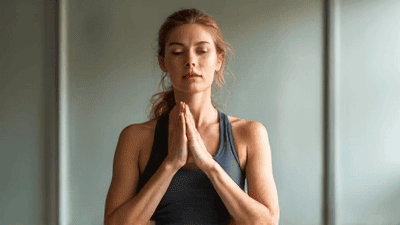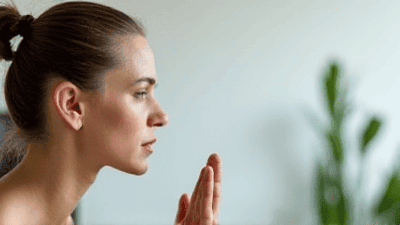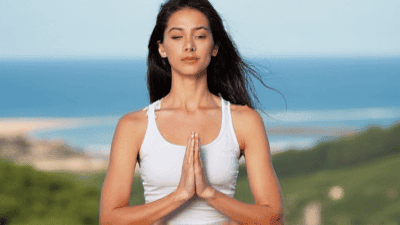
In our fast-paced modern world, stress has become an unwelcome companion for many. Whether due to overwhelming workloads, personal relationships, or the demands of daily life, stress can impact both our mental and physical health. In this context, it is vital to explore effective and accessible methods for stress relief. One such method that has garnered attention for its simplicity and effectiveness is breathing techniques.
Before we can effectively combat stress, it is essential to understand what it is and how it affects us. Stress is the body's natural response to perceived challenges or threats, often referred to as the “fight or flight” response. While stress can be helpful in small doses—alerting us to dangers and motivating us to meet deadlines—chronic stress can lead to severe health issues.
Chronic stress can manifest in various ways:
Understanding these symptoms is crucial in recognizing when it is necessary to seek relief and employ stress management techniques.

Breathing is a fundamental biological function that we often take for granted. However, the way we breathe has a profound impact on our mental and emotional states.
Incorporating breathing techniques into your self-care routine can yield numerous benefits:
Deep and mindful breathing can help alleviate feelings of anxiety and bring the focus back to the present moment. This practice can create a sense of calm and clarity, making it easier to navigate stressful situations.
Engaging in structured breathing exercises encourages relaxation by activating the body’s relaxation response, leading to decreased heart rate and lower blood pressure.
Breathing techniques encourage mindfulness, allowing you to ground yourself in the present moment rather than getting swept away by worries about the past or future.
Taking a moment to breathe deeply can improve cognitive function, helping you regain focus during particularly stressful moments.
Practicing breathing techniques before bedtime can promote relaxation and help prepare your mind and body for a restful night's sleep.

There are various breathing techniques that you can incorporate into your self-care routine. Below are some effective methods that can be practiced anywhere:
Diaphragmatic breathing, also known as belly breathing, emphasizes breathing deeply into the diaphragm rather than shallowly into the chest.
How to Practice:
The 4-7-8 breathing technique is a simple yet effective way to promote relaxation and reduce anxiety.
How to Practice:
Box breathing involves inhaling, holding, exhaling, and pausing all for equal counts. This method is especially popular among athletes and those in high-stress occupations, as it promotes focus and calmness.
How to Practice:
This technique, practiced in yoga, helps balance the body’s energies and promotes relaxation.
How to Practice:
Combining breathing techniques with progressive muscle relaxation can enhance overall relaxation and stress relief.
How to Practice:
Making breathing techniques a regular part of your routine can enhance their effectiveness over time. Here are some tips on how to incorporate these practices into your daily life:
Set aside specific times during the day to practice your breathing techniques. This could be in the morning, during a midday break, or before bedtime. Consistency is key to making these techniques a habit.
Utilize alarms or reminders on your phone to prompt you to take a few minutes out of your day to practice deep breathing. This is especially helpful during stressful work hours or busy days.
Establish a calming space in your home dedicated to relaxation and mindfulness. Use this space for your breathing practice, incorporating elements like aromatherapy, comfortable seating, or soft lighting.
Combine breathing techniques with other self-care activities, such as yoga, meditation, or journaling, to enhance their effects. Engaging in multiple practices together can create a comprehensive wellness routine.
Many apps and online resources offer guided breathing exercises. Consider listening to these as you practice to help you stay focused and motivated.

In addition to regular practice, breathing techniques can be particularly useful in specific stressful situations. Here’s how you can apply them to various scenarios:
When feeling overwhelmed by your workload:
Before a high-stakes meeting:
In moments of acute anxiety:
To promote better sleep:
If you find social situations stressful or anxiety-inducing:
Breathing techniques are most effective when combined with other self-care practices. Consider incorporating the following strategies into your routine for holistic stress management:
Physical activity can significantly reduce stress levels. Aim to engage in at least 150 minutes of moderate-intensity exercise per week. Activities like yoga, tai chi, or even brisk walking can complement your breathing practices.
Nutrition plays a crucial role in mental health. Eating a balanced diet rich in whole foods, including fruits, vegetables, whole grains, healthy fats, and lean proteins, can help reduce stress levels and improve overall well-being.
Prioritize sleep to allow your body and mind to recover from daily stresses. Aim for 7-9 hours of quality sleep each night. Establishing a bedtime routine that includes breathing exercises can enhance sleep quality.
Fostering social connections and maintaining relationships can provide a buffer against stress. Regularly engage in meaningful conversations and spend time with loved ones.
Incorporate mindfulness practices or meditation into your routine to promote relaxation and increase awareness. Mindfulness can enhance the effectiveness of your breathing techniques by training your mind to remain present.
Stress relief through breathing techniques is an accessible and effective strategy that promotes mental health and well-being. By integrating mindful breathing practices into your daily routine, you can cultivate a sense of calm in the face of life’s challenges.
These techniques enhance our ability to manage stress, improve emotional regulation, and foster a healthier relationship with ourselves. As you embark on this journey of self-care, remember that consistency is key. Incorporating breathing exercises into your routine will yield profound benefits over time.
Ultimately, prioritizing your mental health will empower you to lead a more balanced and fulfilling life. Start today by taking a deep breath and embracing the power of mindful breathing.